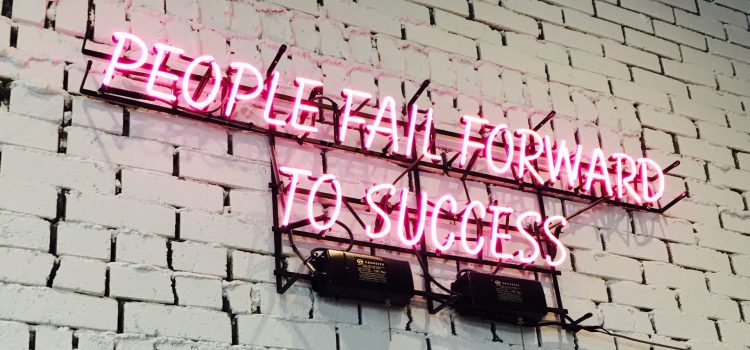

This article is an excerpt from the Shortform book guide to "How Champions Think" by Bob Rotella. Shortform has the world's best summaries and analyses of books you should be reading.
Like this article? Sign up for a free trial here.
Do you constantly deal with challenges and setbacks? How can you bounce back from failure?
In How Champions Think, Bob Rotella writes that to be exceptional, you must learn not only how to bounce back after failure but also how to glean lessons from it. You can do this by learning to value the process over the outcome, letting go of your mistakes, and finding the right people to support you.
Check out how to bounce back from failure below.
1. Value the Process, Not the Outcome
To ward off disappointment and learn how to bounce back from failure, you must see the process of pursuing your goals as more important than the outcome, Rotella writes. Exceptional people pursue their goals fully recognizing the possibility that they may not attain them. They find joy in the process of striving for their goals, rather than in the promise of external rewards or recognition. This mindset ensures that you give it your all and persist even when you face obstacles that might prevent you from getting the outcomes you desire.
You can be more process-oriented by creating two lists of goals: One for training and one for performance. Both lists should be process-focused. So, for example, if you’re a violinist, your training goals might be practicing sight reading for an hour every day and your performance goals might be focusing on the present moment during your concert. Having these goals in place gives you something to focus on other than the outcome of your performance, be that a competition, a musical performance, a speech, and so on.
2. Focus on Successes, Not Failures
Rotella writes that to overcome challenges, you should also focus on your successes and let go of your mistakes. This doesn’t mean you should ignore your mistakes completely. Instead, you should learn from them and then let them go. Wallowing in your mistakes doesn’t improve your performance but only weighs you down and depletes your confidence.
Rotella advises athletes in particular to spend no more than 10 to 20 minutes reflecting on a mistake. When you think about your mistakes, consider how well you followed your training and whether you let your conscious mind get in the way of your performance instead of trusting in your subconscious. Once you’ve reflected on these points and figured out how to do better next time, move on.
3. Find Support in Others
Another way you can grow from challenges and setbacks is by finding people who can give you advice and support you with your goals, Rotella writes. However, you must also be selective with who you listen to and learn to distinguish helpful feedback from unhelpful feedback. If you take everyone’s advice, you’ll end up experimenting with different and often contradictory approaches that will only leave you confused, distracted, and frustrated.
To determine who to listen to, Rotella suggests you first find the right people to support you. They should be optimistic and encouraging, yet willing to give you honest and constructive feedback. They should also share your vision and values. He then advises that when you find people you trust, you should treat them with respect and listen to their advice.
Even when you trust someone’s opinions, though, you still shouldn’t take their advice without thought, Rotella writes. He suggests you listen to them, but know your strengths and stick with the techniques that suit you best. Their advice may be sound and their techniques may work for others, but they may not match your natural strengths.
Listening to the opinions of people you trust ensures you get constructive feedback that helps you improve rather than unhelpful feedback that damages your self-confidence. Thus, Rotella advises that once you’ve identified people you trust who can give you feedback, you tune out feedback from everyone else. This includes other experts who want to offer you tips, as well as negative and unhelpful people who may try to discourage you. Rotella advises you to ignore these people and not let them affect your confidence or performance.

———End of Preview———
Like what you just read? Read the rest of the world's best book summary and analysis of Bob Rotella's "How Champions Think" at Shortform.
Here's what you'll find in our full How Champions Think summary:
- The secret to how some people can achieve extraordinary success
- The shared mindset that sets champions apart from average people
- How you can master skills, learn from challenges, and reach your goals






